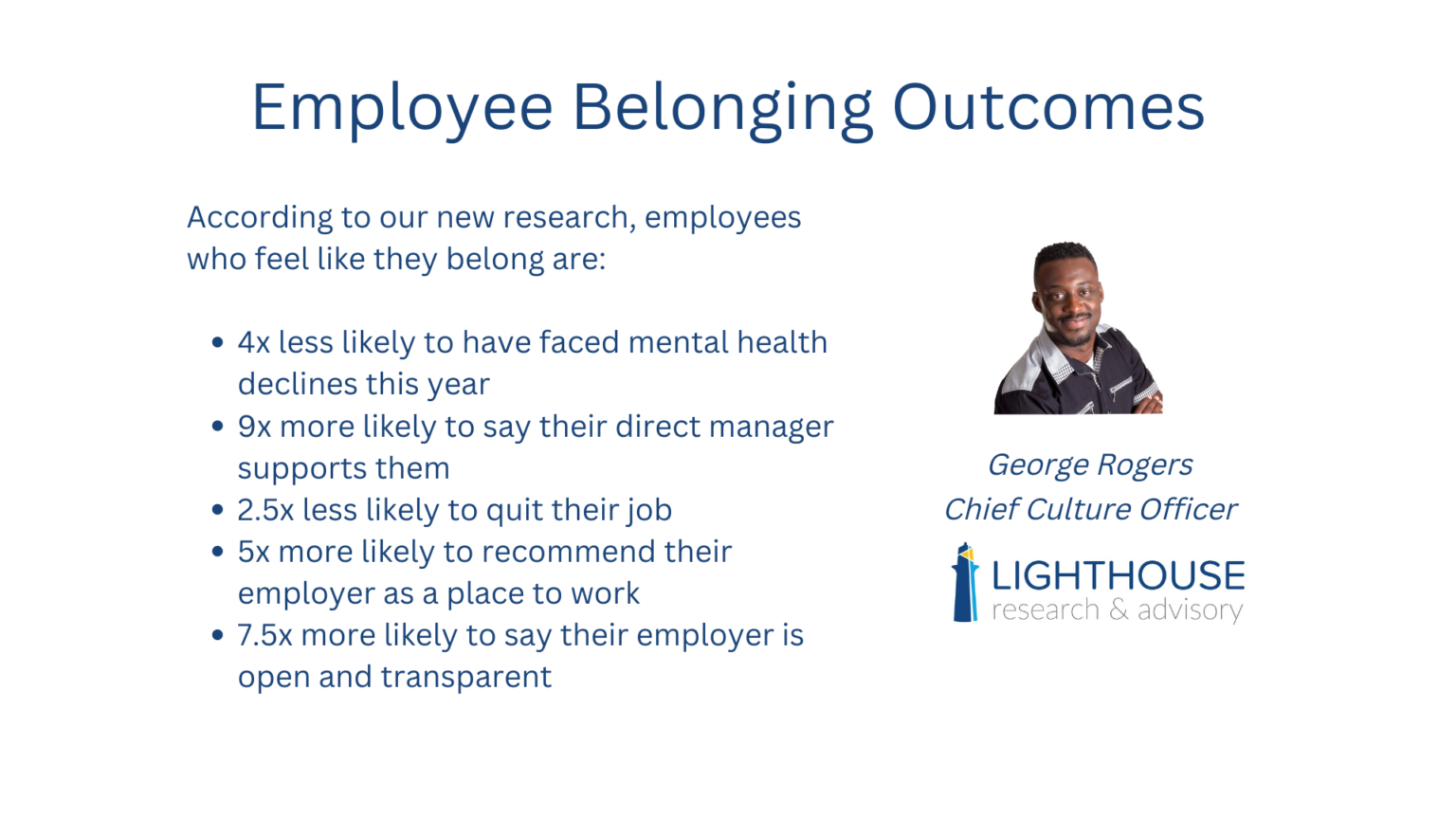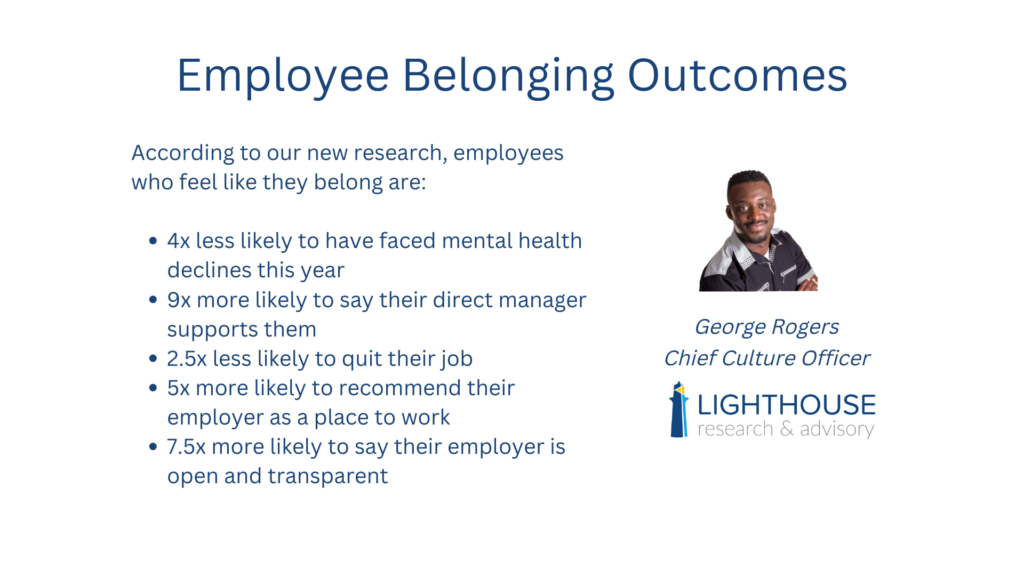[Edited with new data August 2024]
Most researchers believe the annual voluntary turnover rate for U.S. employees will rise this year, with a heavy percentage of that being voluntary. After all, the data from the Bureau of Labor Statistics shows that the quit rate that we’ve become accustomed to is still at record high levels when compared to historical numbers (see our data on the top three reasons people quit their jobs).
There could be many reasons, I want to unveil one core root: leadership. The quote many use is this:
People don’t leave bad jobs. They leave bad bosses and poor management.
I believe the critical driver of this is that leaders are not connecting to their teams. When there is a lack of connection, there can be no space for employees to belong. The psychological definition of belonging is pretty straightforward: when one feels respected, accepted, and appreciated.
But that environment doesn’t always exist. Consider these findings from one of our studies of more than 1,000 global workers. Within that data set, racially diverse employees are:
- 30% more likely to say their manager has never talked with them about their skills for future success at work (how can they see a future at our organization if we don’t show it?)
- 50% less likely to say that their leader has discussed how their strengths align to company priorities (do we expect them to feel like they belong when we haven’t shown it?)
- 50% more likely to say they aren’t treated fairly when it comes to performance expectations (who among us would feel motivated in this environment?)
We can do better.
When an employee is connected and has a sense of belonging, our latest research here at Lighthouse Research & Advisory indicates that employees are 9x more likely to say their direct manager supports them. We’ve seen some incredible data around this manager understanding/support connection already. When employees feel that their leadership connects with them, giving them a sense of belonging through the three principles of respecting, accepting, and appreciating their people, the results and outcomes are incredible:
Employees with a high belonging score are 5x more likely to recommend their employer as a place to work!
These data points reinforce for me that leadership is the root of company culture and the heartbeat behind employee retention. Organizations with leaders who respect, accept, and appreciate their employees provide a true sense of what it means to be on a team. We’ve all worked on teams where people were going through the motions or just phoning it in. However, when leaders set the foundation for success, then team members can truly show up ready to be their true best self at work. Successful leaders accomplish this through authenticity and transparency, but they also provide an environment where someone can disagree without fear of repercussion, reprisal, or retaliation.
I challenge everyone on this: as leaders, we must lead the life we love and help our people create the same. We have that opportunity, yes, but also the responsibility to make it possible for them in how we lead, support, and guide them every day. Take some time today to connect with your people, they (and you) will be glad you did.

George Rogers is the Chief Strategy Officer at Lighthouse Research & Advisory. He is an author, coach, and globally renowned keynote speaker acclaimed for delivering compelling insights on cultivating purpose-driven, profitable businesses. As a leader developing inclusive and motivating workplace environments, he consistently provides transformative perspectives and guidance to organizations worldwide. Over the past two decades, he has dedicated himself to inspiring leaders and transforming workplace cultures.
In his book Champion Your Purpose, we learn that finding purpose in life looks different for everyone, and very few will find the exact common purpose that aligns the exact same. He provides a step-by-step approach to help readers identify their purpose and align it with their personal and professional goals.
His research focuses on leadership and its impact on performance, engagement, culture, mental health, inclusion, and belonging. If you ask him what led him to the HR space, he will remind you that his passion and purpose are championing people.
With over 25 years of leadership and keynote speaking experience, he has inspired, empowered, and challenged every audience —virtually and in person —to discover their purpose in the workforce, learn how to Champion Your Purpose individually, and lead the life they love.


